Key takeaways:
- Sustainable living workshops foster community and promote eco-friendly practices through shared experiences and practical skills.
- Animal protection is vital for biodiversity and well-being, as every species is interconnected, influencing ecosystems and human lives.
- Organizing workshops creates empowered advocates who can inspire transformative changes within their households and communities.
- Engaging local communities enhances workshop experiences by fostering connections and collaboration, making learning interactive and impactful.
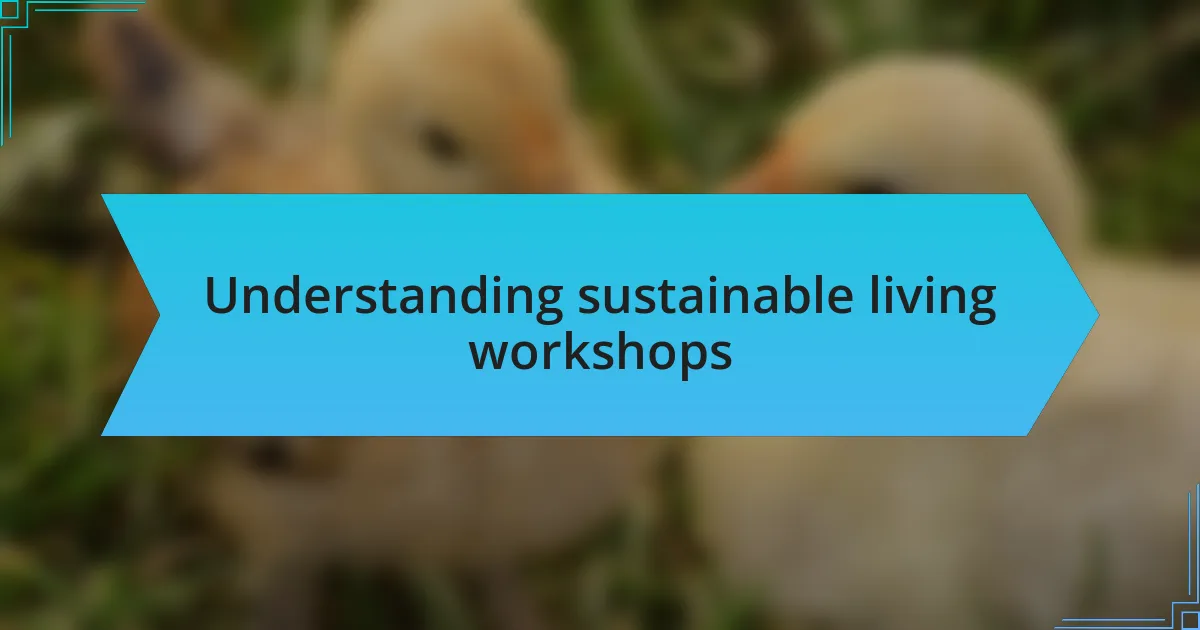
Understanding sustainable living workshops
Sustainable living workshops serve as valuable spaces where individuals can learn and share practical skills that support eco-friendly lifestyles. I remember attending my first workshop, feeling a mix of excitement and curiosity as I discovered alternative ways to reduce waste and conserve energy. It was fascinating to see how small changes, like using reusable bags or composting, could have a significant impact on our planet.
These workshops often foster a sense of community among participants, creating supportive networks that encourage ongoing sustainable practices. I found it heartening when fellow attendees openly shared their struggles and successes, which sparked meaningful conversations about the challenges we all face in embracing sustainability. This sense of camaraderie made the learning process not just informative but also deeply emotional.
Have you ever wondered how to make a positive impact on the environment while connecting with others who share your values? Sustainable living workshops provide that unique opportunity. They empower participants with knowledge and resources, making sustainability feel achievable and approachable in our everyday lives.
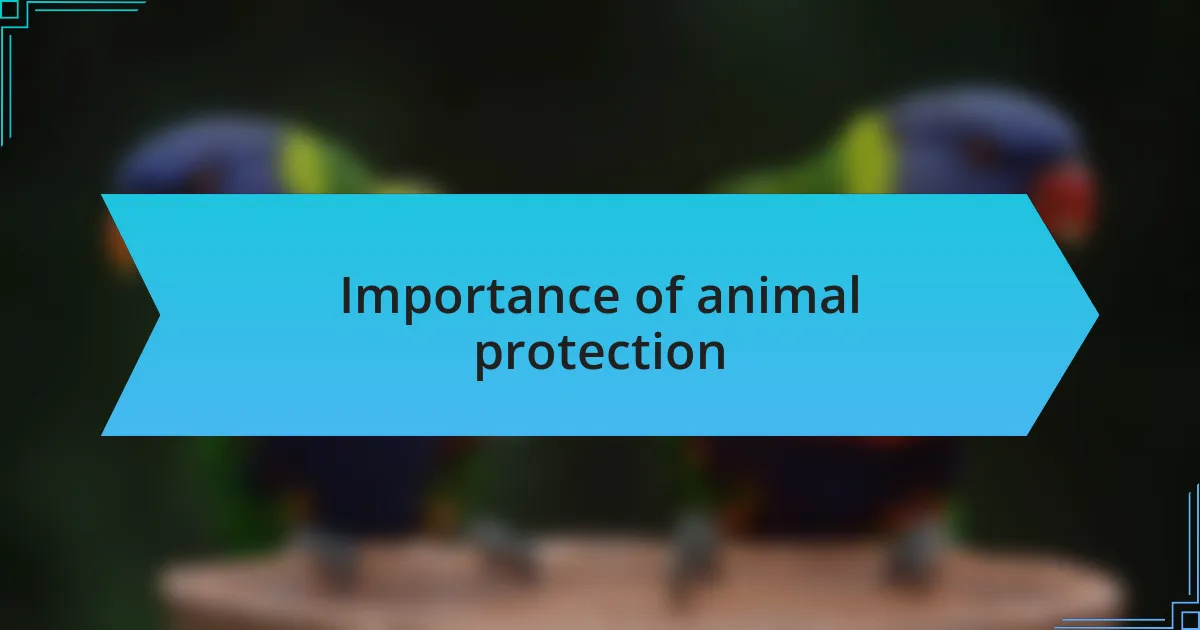
Importance of animal protection
The importance of animal protection cannot be overstated. Every day, countless animals endure suffering in various forms, whether from habitat destruction, pollution, or exploitation. I remember visiting a local shelter where rescue dogs greeted me with wagging tails, a clear reminder of the joy and companionship animals bring to our lives. These experiences highlight our responsibility to advocate for those who cannot speak for themselves.
Animal protection also plays a crucial role in maintaining biodiversity. I often think about how every species is interconnected, much like the threads in a tapestry. Losing one thread, or in this case, one species, can unravel entire ecosystems. This delicate balance is something we must prioritize, as it directly affects our environment and, ultimately, our own well-being.
Have you ever stopped to consider the emotional toll that neglecting animal welfare can have on us as individuals? Witnessing mistreatment can leave us feeling powerless and disheartened. Yet, by actively engaging in animal protection efforts, we can not only alleviate their suffering but also nurture a sense of purpose and fulfillment within ourselves.
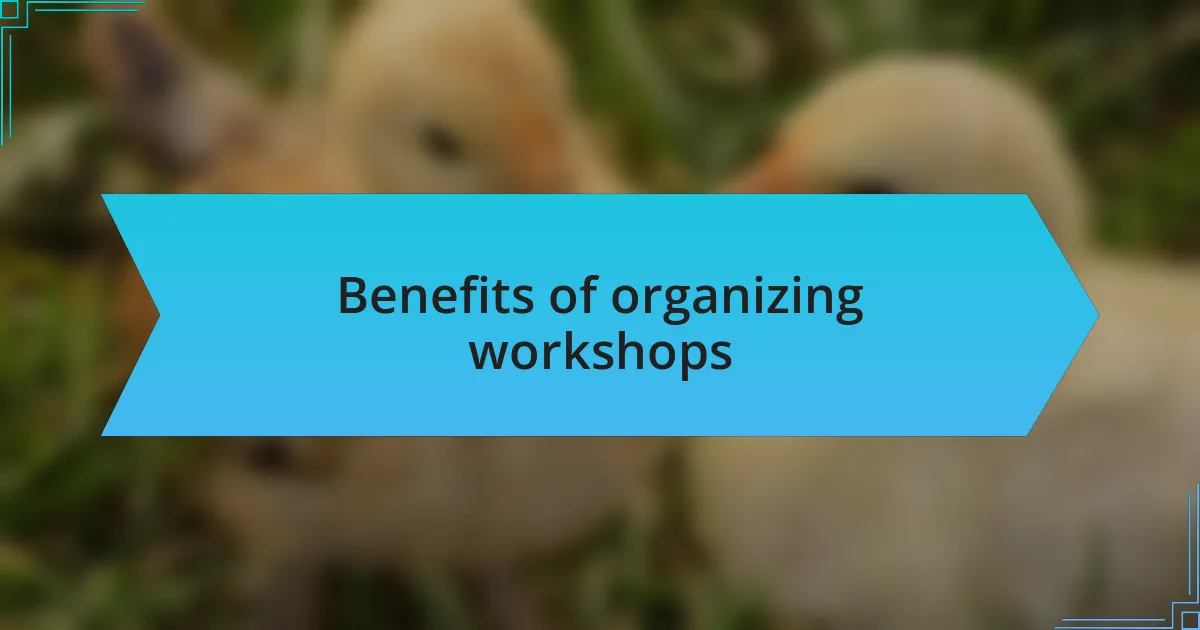
Benefits of organizing workshops
Organizing workshops can create a strong sense of community among participants. I remember the buzz of excitement when I attended a sustainable living workshop; strangers quickly transformed into friends, united by a shared passion. Isn’t it uplifting to connect with like-minded individuals who are equally dedicated to making a positive impact?
Moreover, these workshops provide participants with practical skills and knowledge. I once led a session on creating natural cleaning products, and the looks of surprise when attendees discovered how easy and effective these alternatives were made me feel like I was planting seeds of change. How empowering is it to realize that we can reduce our ecological footprint with just a few simple adjustments in our daily lives?
Additionally, the ripple effect of organizing such sessions can be significant. Each participant leaves equipped not just with information but with inspiration to share these sustainable practices with others. I’ve seen how sharing insights can lead to personal transformations, making a difference not just in individual households but within entire communities. When we teach others, we amplify our impact, creating a growing network of advocates for animal protection and environmental sustainability.
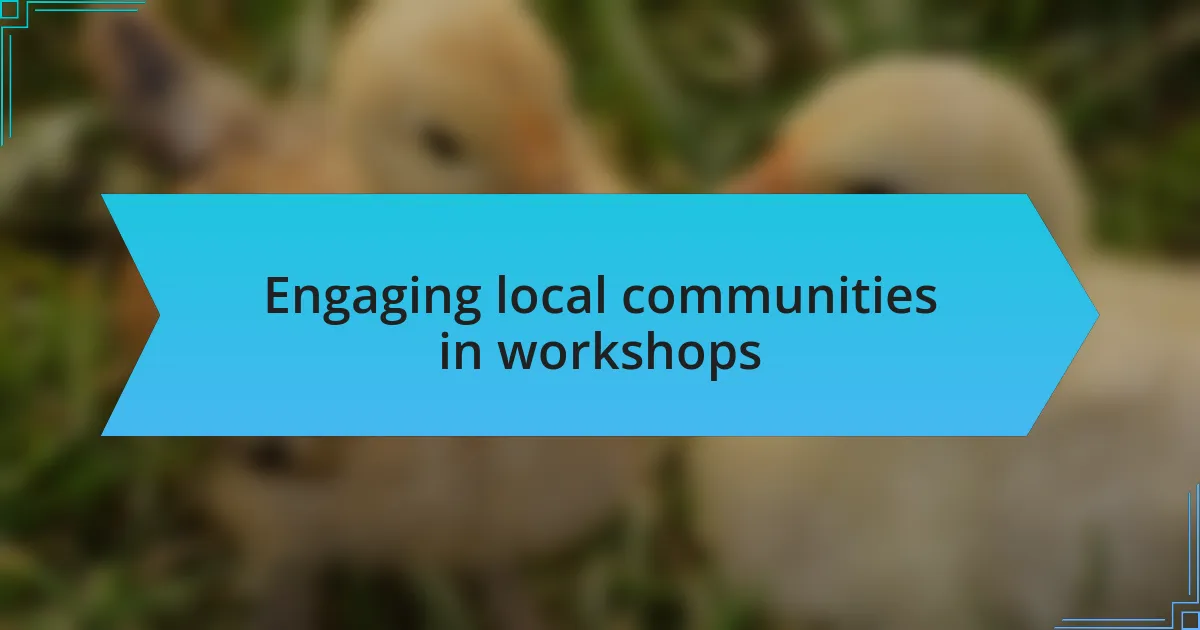
Engaging local communities in workshops
Engaging local communities in workshops is not just about gathering people together; it’s about cultivating a sense of belonging and shared purpose. I vividly recall a workshop where community members were encouraged to contribute their stories about sustainable practices in their homes. Listening to someone share their journey of composting was refreshing, and it sparked a lively discussion. Isn’t it interesting how personal stories can bridge gaps between experiences, creating deeper connections among participants?
I often find that effective engagement relies on making the workshops interactive. For instance, during a session on urban gardening, I noticed participants lighting up as they planted seeds together. Their enthusiasm was contagious, and it made the learning process feel less like an obligation and more like a collaborative adventure. Doesn’t it feel amazing to witness a group transform from passive listeners into active participants?
Moreover, fostering local partnerships can widen the reach of these workshops. Collaborating with local businesses or schools, I discovered, not only draws in more attendees but enriches the learning experience with diverse perspectives. When one local bakery offered to sponsor snacks for a workshop, it not only brought in more people but also initiated conversations about sustainable food sourcing. How rewarding is it to see a simple idea manifest into a collaborative effort that strengthens community ties while promoting sustainable living practices?
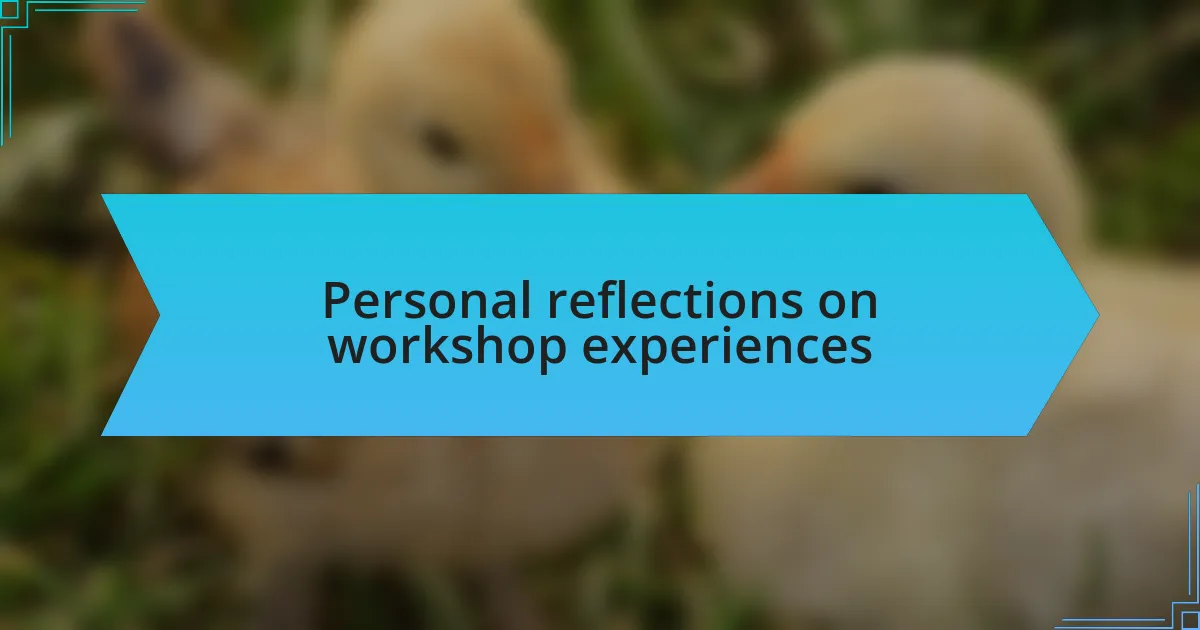
Personal reflections on workshop experiences
I cherish the moments when participants share their aha! moments during these workshops. Once, a young mother expressed her joy in learning how to make eco-friendly cleaning products. The relief in her voice, as she realized she could reduce her family’s chemical exposure while being kind to the planet, was genuinely heartwarming. Can you imagine the ripple effect of such a simple yet powerful transformation?
In reflecting on my experiences, I’ve come to appreciate the diverse backgrounds of those who attend. A workshop on reducing plastic waste brought together individuals from various walks of life, and their differing perspectives enriched the dialogue. I remember one participant, an artist, who shared how she repurposed plastic bags into stunning art pieces. Isn’t it inspiring to witness creativity flourishing from a common goal?
One unforgettable workshop was when we delved into mindfulness in sustainable living. As we practiced meditation focused on our connection to nature, I felt a palpable shift in the room. Participants left feeling renewed and motivated. Have you ever experienced such a profound sense of community support that it lingers long after the gathering? It’s in those shared moments that I find the true essence of our work.